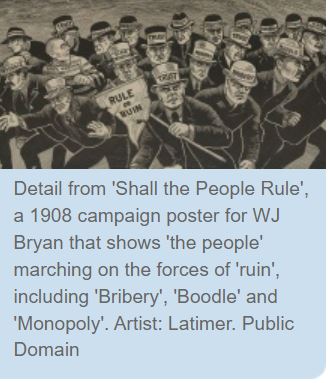Articles

Misinformation tool measures exposure to false claims by political elites
Researchers have developed a new tool to measure Twitter users’ exposure to misinformation from political elites.
A study recently published in Nature Communications used the Politifacts fact-checking database to calculate a ‘falsity score’ for 816 public figures and organisations based on the likely truthfulness and accuracy of their statements on social media.
They then assigned Twitter users an ‘elite misinformation exposure’ score, based on the falsity scores of the political elites they follow on Twitter.
Instead of focusing on the sharing of fake news, which came to prominence during the 2016 US election cycle, the study centres on a more recent phenomenon – misinformation provided by political elites, such as those who falsely claimed the 2020 US Presidential Election was subject to widespread voter fraud.
“In focusing on what people believe and share, prior work has largely overlooked what misinformation people are exposed to,” said Dr Mohsen Mosleh, a senior lecturer in Business Analytics at the University of Exeter Business School and a Fellow at Alan Turing Institute, explaining why the study focuses on exposure to – rather than the sharing of – misinformation.
“Although exposure and sharing are obviously related, most people share only a tiny fraction of the content they are exposed to, and therefore examining the content someone shares provides a very limited picture of a person’s information environment.”
The researchers found that those users whose misinformation exposure score was high also shared news from outlets independently judged to be of low quality (eg because they have spread misinformation), as well as used more toxic language, and expressed more moral outrage online.
“This observation connects to research suggesting that political leaders’ rhetoric can drive the beliefs and policy positions of their followers rather than the leaders responding to the attitudes held by their constituents,” said Dr Mosleh.
The researchers also looked at the co-follower, co-share and co-retweet networks of 5,000 Twitter users and identified a cluster of accounts that tended to be followed by users who were estimated to be more conservative and who had higher misinformation exposure scores.
Ideological extremity was also found to be more strongly associated with following political elites who had high falsity scores when the Twitter users in question were thought to be conservatives, but such strong correlation was not found among liberals.
The researchers have created an open-source R library and Application Programming Interface (API) to make the misinformation exposure estimation tool openly available to the research community which can be accessed here.
‘Measuring exposure to misinformation from political elites on Twitter’ by Dr Mohsen Mosleh of the University of Exeter Business School and ProfessoDavid G Rand of the Massachusetts Institute of Technology is published in Nature Communications.
Date: 28 November 2022
Date: 28 November 2022
